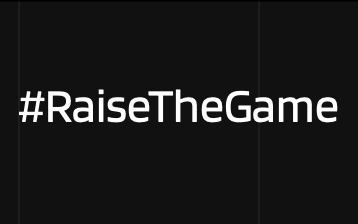Specific considerations









Key organisations & resources
 Visit website on #RaiseTheGame
Visit website on #RaiseTheGame #RaiseTheGame
RaiseTheGame is a collaborative and high-impact pledge to improve equality, diversity and inclusion in the games industry.
 Visit website on Autistica Play
Visit website on Autistica Play Autistica Play
Autistica Play makes progress for autistic people by working with game players and the games industry.
 Visit website on Code Coven
Visit website on Code Coven Code Coven
Code Coven is the first global accelerator and academy dedicated to forwarding opportunities for marginalised game developers at all levels.
 Visit website on Diversily
Visit website on Diversily Diversily
Diversily helps innovative organisations to embed diversity and inclusion into their core, to drive up performance and impact.
 Visit website on GamesAid
Visit website on GamesAid GamesAid
The games industry charity raising money for other UK charities working with children and young people.
 Visit website on Limit Break
Visit website on Limit Break Limit Break
Limit Break is a mentorship programme aimed at underrepresented people working in the UK games industry.
 Visit website on National Autistic Society
Visit website on National Autistic Society National Autistic Society
Transforms lives and changes attitudes to help create a society that works for autistic people.
 Visit website on RNID
Visit website on RNID RNID
A charity supporting the 12 million people in the UK who are deaf, have hearing loss or tinnitus.
Royal National Institute of Blind People
RNIB, the Royal National Institute of Blind People, is the UK’s leading sight loss charity.
 Visit website on Scope
Visit website on Scope Scope
Scope is a disability equality charity in England and Wales that provides practical information and emotional support.
 Visit website on Special Effect
Visit website on Special Effect Special Effect
Puts fun and inclusion back into the lives of physically disabled people by helping them to play video games.
 Visit website on Ukie
Visit website on Ukie Ukie
The trade body for the UK games and interactive entertainment industry.
Calendar events

Young Carers Action Day
The UK’s Young Carers Action Day is an annual event dedicated to recognising and raising awareness about the challenges faced by young people who provide care for family members with illnesses, disabilities, or other needs.
Learn more about Young Carers Action Day
Disabled Access Day
The UK’s Disabled Access Day is a day dedicated to raising awareness and promoting the accessibility of places and experiences for people with disabilities.
Learn more about Disabled Access Day
World Autism Awareness Day
World Autism Awareness Day is an internationally recognised day on April 2nd dedicated to raising awareness about autism spectrum disorders and promoting understanding and inclusion for those affected.
Learn more about World Autism Awareness Day
Deaf Awareness Week
Deaf Awareness Week is a campaign to raise awareness about the challenges faced by the deaf and hard of hearing community, promoting understanding and inclusion.
Learn more about Deaf Awareness Week
National Day for Staff Networks
The National Day for Staff Networks is the world’s only nationwide day dedicated to recognising networks/resource groups and the incredible value they add to the workplace.
Learn more about National Day for Staff Networks
Carers Week
Carers Week is an annual campaign to raise awareness of caring, highlight the challenges unpaid carers face and recognise the contribution they make to families and communities throughout the UK.
Learn more about Carers Week
Learning Disability Week
Get ready to bust myths about living life with a learning disability.
Learn more about Learning Disability Week
Develop:Brighton
The Develop:Brighton conference has something for everyone – 10 tracks covering every discipline of game making, including free Roundtables and Indie BootCamp. It’s main focus is practical take-away and vocational content giving you the chance to “skill-up” and do what you do even better.
Learn more about Develop:Brighton
National Inclusion Week
Founded by Inclusive Employers, National Inclusion Week (NIW) is a week dedicated to celebrating inclusion and taking action to create inclusive workplaces.
Learn more about National Inclusion Week

